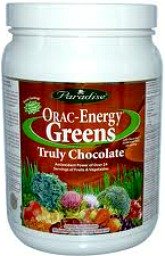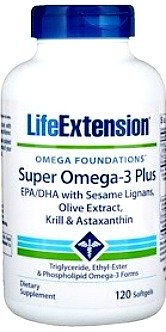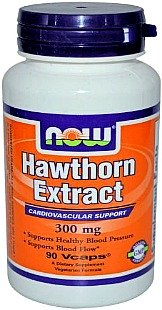Living with heart pacemaker
Heart pacemaker is a device which is used to normalize heart rate, by correcting irregular electrical impulses of the cardiac muscle. These problems are usually caused by the malfunctions in its natural pacemaker rhythm.
However, heart's electrical activity can be affected due to other factors such as nerve and muscle disorders. There are also two types of cardiac pacemakers, temporary ones and the permanent ones.
We are going to talk about the ones which can last from 7 to 15 years, before it comes the need to change the batteries.
USES OF PACEMAKER
Cardiac pacemaker can be used to:
- Speed up slow heart rate
- Slow down fast heart rate
- Normalize irregular heart rate
- Prevent dangerous arrhythmias caused by long QT syndrome
- Regulate electrical impulses between the heart chambers. Only special kind of heart pacemakers are able to do this. They are mostly used to treat heart failure.
- Coordinate electrical impulses, while making sure that upper and lower heart chambers are contracting normally, if the atria is quivering, instead of beating normally.
Although pacemakers are mostly used to treat heart disease, they can also be used to monitor progression of heart disease. Besides recording heart rate and electrical acitvity of the cardiac muscle, they can monitor blood pressure, temperature, adrenaline or oxygen levels, breathing rate and other functions.
HOW TO PREPARE FOR PACEMAKER INSTALLATION
You will have to shower day before the surgery. You may also be given a special anti-bacterial soap to thoroughly wash your whole body below the neck.
Tell you doctor about drugs or supplements you might be taking, before the surgery. He will tell you which ones you should and shouldn't take.
When it comes to food, it is advised not to eat or drink anything after midnight, the night before the surgery.
WHAT TO EXPECT DURING PACEMAKER INSTALLATION
You will be given a sedative to help you relax but you will be awake during procedure. The doctor will make a small incision, usually on the left side of the chest, below the collarbone.
The first part of pacemaker, the generator which contains battery and the information to control the heart beat, is placed under the skin where the incision is made.
The second part of heart pacemaker, the leads which are the wires connecting the heart to the generator that carry electrical messages, are positioned by the doctor with the help of live X-rays.
After the leads and the generator are in place and connected, incision is closed with stitches. This procedure takes about 1 hour, while you are usually free to go home 1 day after the surgery.
RISKS DURING INSTALLATION OF CARDIAC PACEMAKER
Although the risk of complications, during the surgery is minimized due to advancements in technique and technology, it is still possible. They may include:
- Bleeding
- Bleeding around the heart, caused by puncture of the heart which is very rare
- Punctured lung in rare occasions
- Infection
- Irregular heart rhythm
LIVING WITH HEART PACEMAKER
Individuals living with cardiac pacemaker should stay away from high powered electrical equipment, electrical substations, high power transmitters and magnets such as MRI.
Although it is used to treat heart related diseases, patients are still obliged to take medication, in certain cases. This includes drugs for arterial hypertension, anticoagulants in case of atrial fibrillation and sometimes even antiarrhythmics.
When it comes to your hobbies, daily and recreational activities or sports, caution should be advised. Although, mild physical activity is helpful and even encouraged, you shouldconsult with your doctor if you are engaged in intense physical activities.
Also, people living with heart pacemaker should avoid diving. On the other hand, you are free to engage in sexual activities.
Don't forget to carry your international pacemaker identification card, have regular check ups at doctor's office and stick to a healthy diet, in order to keep your BMI below 25.
- Heart Healthy Diet: Simple Tips and Guidelines
- Learn everything you need to know about heart healthy diet and find the right one for you. Implement few simple tips for immediate benefits.
- Heart Healthy Foods: How to Get the Most from Them
- Heart healthy foods can improve cardiovascular system function. Foods good for the heart are bursting with vitamins, minerals and rejuvenating phytochemicals.
- Herbs for the Heart and Cardiovascular System
- You have heard for hawthorn and garlic but there are few other herbs for the heart which can help in treating heart disease, naturally.
- The Best Heart Health Supplements
- Besides fish oil, there are several heart health supplements which can be useful. This includes Coenzyme Q10, Salicin, vitamin D3 and few others.
- Heart Healthy Spices
- Although there are many heart healthy spices out there, each of them can help prevent and treat heart disease in its own way, thanks to different types of flavonoids in these heart spices.
- Stress and Heart Disease: How are They Connected
- Stress and heart disease are closely related. In order to decrease the risk of heart problems, we have to learn how to handle the stress and treat its consequences, if we are unable to avoid it.
- Cardio Exercises for the Heart and Cardiovascular System
- Cardio exercises are vital part of natural heart disease treatment. However, which kind of heart exercise you should preform, varies from person to person.
- Good vs Bad Cholesterol: How to Improve Cholesterol Values
- Good vs bad cholesterol conflict is somewhat misunderstood. There is no good or bad cholesterol but only high or unbalanced cholesterol.
- Good Fats vs Bad Fats: Nutritional Facts and Guidelines
- What is the real truth when it comes to good fats vs bad fats? How much dietary fats should you consume daily and what are the best food sources of healthy fats?
- High Blood Pressure Remedies
- High blood pressure remedies range from tips and lifestyle modification to herbs and supplements. However, the method that works for someone else, may not work for you.
- Normal Heart Rate: How is Regulated and Influential Factors
- Normal heart rate varies from person to person. Although, age affects resting heart rate, there are many other factors that can raise or decrease heart rate.
- How to Lose Fat: Overlooked Tips for Weight Loss
- How to lose fat is surely one of the most intriguing questions for so many people. However, the answer is very simple. Eat healthy foods, perform fat burning exercises and take care of your hormones.
- Hormones and Heart Disease Connection
- Don't neglect hormones and heart disease connection. If you want to treat or prevent heart disease you have to balance your hormones.
- Heart Disease and Immune System Connection
- Heart disease and immune system connection is often overlooked, while trying to improve cardiovascular system function. However, there are several things you can do to change this.
- Dental Health Heart Disease Connection: Facts and Tips
- Dental health heart disease connection is one of three overlooked factors, along with hormones and immune system. However, with smart and effective approach we can change this.
- Causes of Heart Disease
- There are many causes of heart disease and factors that can increase or decrease your risk for developing heart related problems. Check how to turn the tide in your favour.
- Symptoms of Heart Disease
- There are few main symptoms of heart disease. Find out which are they, how to recognize them as well as my personal experience with some of them.
- Diagnosis of Heart Disease
- Accurate diagnosis of heart disease is the first step toward recovery. You can't start with treatment before you know what kind of disease you have, obviously.
- Treatment for Heart Disease: Medications and Surgeries
- Standard treatment for heart disease consists of surgeries, medications and devices. Which one is right for you, depends on your condition.
- Heart Disease Blog
- This is a blog about natural remedies, personal stories, helpful herbs and supplements, workout program as well as other tips and facts which may help people faced with heart disease.
- Contact Me
- Ask questions and leave comments about this site here.
- About the Author of Heart Health Guide
- About the author of Heart-health-guide.com website.
- Heart Health Guide Sitemap
- This is sitemap of Heart Health Guide.com. If you want to get better overview of informations on this website, you can get it here.
Copyright © - Heart Health Guide - All Rights Reserved.



